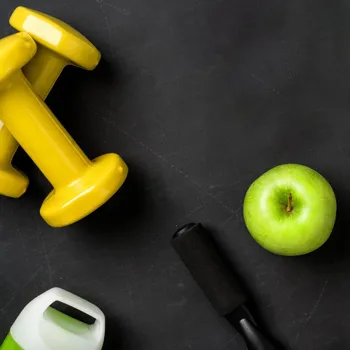Unlock a Balanced Lifestyle: Tips for Busy Professionals. Dive into strategies for well-being and productivity
In the bustling landscape of today's India, where ambition and career aspirations often take
center stage, striking a harmonious balance between professional commitments and personal well-being can feel like a Herculean task.

Busy professionals, juggling demanding workloads, tight deadlines, and the constant pressure to excel, frequently find themselves teetering on the brink of burnout. The pursuit of success should not come at the expense of one's physical and mental health.
Creating a balanced lifestyle is not merely a desirable goal; it is an essential ingredient for sustained productivity, overall happiness, and a fulfilling life.
This article will delve into eight practical tips that can empower busy professionals to reclaim their well-being and cultivate a more balanced and enriching existence.
Effective time management is key for balance and productivity; prioritize tasks wisely
One of the cornerstones of a balanced lifestyle is mindful time management. Time, as they say, is a precious resource, and how we allocate it can significantly impact our ability to juggle multiple responsibilities effectively.
Start by creating a detailed schedule that outlines your work commitments, personal appointments, and dedicated的時間 blocks for leisure activities. Prioritize tasks based on their urgency and importance, and learn to delegate responsibilities whenever possible.
Avoid procrastination by breaking down large projects into smaller, more manageable chunks. Utilise time-saving tools and techniques, such as the Pomodoro Technique or time-blocking methods, to enhance your focus and productivity.
Remember, effective time management is not about squeezing more activities into your day; it is about making the most of the time you have available and allocating it wisely to activities that contribute to your well-being.
By taking control of your schedule, you can create space for both work and personal pursuits, reducing stress and promoting a sense of accomplishment.
Regular exercise and balanced diet crucial for well-being
Physical well-being is an indispensable pillar of a balanced lifestyle. Regular physical activity, even in small doses, can significantly boost your energy levels, improve your mood, and enhance your overall health.

Incorporate exercise into your daily routine, whether it is a brisk walk during your lunch break, a yoga session in the evening, or a weekend hike in nature. Aim for at least 30 minutes of moderate-intensity exercise most days of the week.
Remember, exercise does not have to be a chore; find activities that you enjoy and that fit seamlessly into your lifestyle. A balanced diet is equally crucial for maintaining physical well-being. Prioritize whole, unprocessed foods, such as fruits, vegetables, whole grains, and lean proteins.
Limit your intake of refined sugars, processed foods, and unhealthy fats. Stay hydrated by drinking plenty of water throughout the day. Proper nutrition provides your body with the fuel it needs to function optimally and combat stress. Listen to your body's cues and adjust your diet accordingly.
Ensure you are having food on time. A healthy body is a prerequisite for a healthy mind, and both are essential for a balanced and fulfilling life.
Cultivate strong social connections for emotional well-being
Cultivating strong social connections is vital for emotional well-being and a balanced lifestyle. Make time for family and friends, even amidst your busy schedule. Nurture your relationships by engaging in meaningful conversations, sharing experiences, and offering support.
Strong social connections provide a sense of belonging, reduce feelings of isolation, and offer a buffer against stress. Join social clubs, volunteer organizations, or community groups to expand your social circle and connect with like-minded individuals.
Remember, relationships require effort and attention. Schedule regular social activities, even if it is just a weekly phone call with a loved one or a monthly get-together with friends. Don't underestimate the power of social interaction to uplift your spirits and enhance your overall well-being.
Loneliness and isolation can have detrimental effects on both your mental and physical health. Prioritizing social connections is an investment in your happiness and a key ingredient for a balanced life.
Setting boundaries between work and personal life is crucial for preventing burnout and maintaining balance
Setting boundaries between work and personal life is crucial for preventing burnout and maintaining a healthy work-life balance. In today's hyper-connected world, it can be tempting to constantly check emails, answer calls, and respond to messages, even outside of work hours.

However, this constant availability can erode your personal time and lead to increased stress and exhaustion. Establish clear boundaries between your work and personal life by setting specific work hours and sticking to them as much as possible.
Turn off work notifications when you are not working and resist the urge to check your email or answer calls. Communicate your boundaries to your colleagues and clients so they understand when you are available and when you are not.
Create a dedicated workspace at home to help you separate work from your personal life. When you are not working, focus on activities that you enjoy and that help you relax and recharge.
Setting boundaries is an act of self-care that protects your personal time and allows you to fully disconnect from work, leading to a more balanced and fulfilling life.
Prioritize mental well-being with mindfulness and self-care practices
Prioritizing mental and emotional well-being is paramount for maintaining a balanced lifestyle. Incorporate stress-reducing activities into your daily routine, such as meditation, deep breathing exercises, or spending time in nature.

Mindfulness practices can help you become more aware of your thoughts and feelings, allowing you to manage stress more effectively. Engage in hobbies or activities that you enjoy and that help you relax and recharge.
Read a book, listen to music, paint, or pursue any activity that brings you joy and helps you unwind. Practice self-compassion by treating yourself with kindness and understanding, especially during challenging times.
Remember that it is okay to make mistakes and that setbacks are a normal part of life. Seek professional help if you are struggling with stress, anxiety, or depression.
Mental health professionals can provide you with the tools and support you need to manage your emotions and improve your overall well-being.
Prioritize sleep for overall well-being and balanced lifestyle
Adequate sleep is often neglected, it is a fundamental requirement for both physical and mental health. Aim for at least 7-8 hours of quality sleep each night. Establish a regular sleep schedule by going to bed and waking up at the same time each day, even on weekends.
Create a relaxing bedtime routine by taking a warm bath, reading a book, or listening to calming music. Avoid caffeine and alcohol before bed, as they can interfere with your sleep. Make sure your bedroom is dark, quiet, and cool.
Adequate sleep improves your mood, boosts your energy levels, enhances your cognitive function, and strengthens your immune system. Lack of sleep can lead to increased stress, irritability, and impaired decision-making.
Prioritizing sleep is an investment in your overall well-being and a crucial component of a balanced lifestyle.
Pursue personal growth for a balanced, fulfilling life
Pursuing personal growth and development is an essential aspect of a balanced lifestyle. Set personal goals and work towards achieving them, whether it is learning a new skill, taking a course, or volunteering for a cause you care about. Personal growth keeps you engaged, challenged, and motivated.
Read books, attend workshops, or listen to podcasts on topics that interest you. Seek out mentors or role models who can provide guidance and support. Step outside of your comfort zone and try new things. Embrace challenges and view failures as opportunities for learning and growth.
Personal growth is a lifelong journey that enhances your self-esteem, expands your horizons, and adds meaning and purpose to your life.
Practicing gratitude enhances well-being, reduces stress, and fosters positivity
Practicing gratitude can significantly improve your overall well-being and contribute to a more balanced lifestyle. Take time each day to reflect on the things you are grateful for, whether it is your health, your relationships, your job, or your home.

Keep a gratitude journal and write down things for which you are thankful. Express your gratitude to others by thanking them for their kindness and support. Practicing gratitude shifts your focus from what you lack to what you have, fostering a more positive and appreciative outlook on life.
Gratitude reduces stress, improves your mood, strengthens your relationships, and enhances your overall happiness. It is a simple yet powerful practice that can transform your life and promote a sense of contentment and fulfillment.
AI Generated Content. Glance/InMobi shall have no liability for the content











